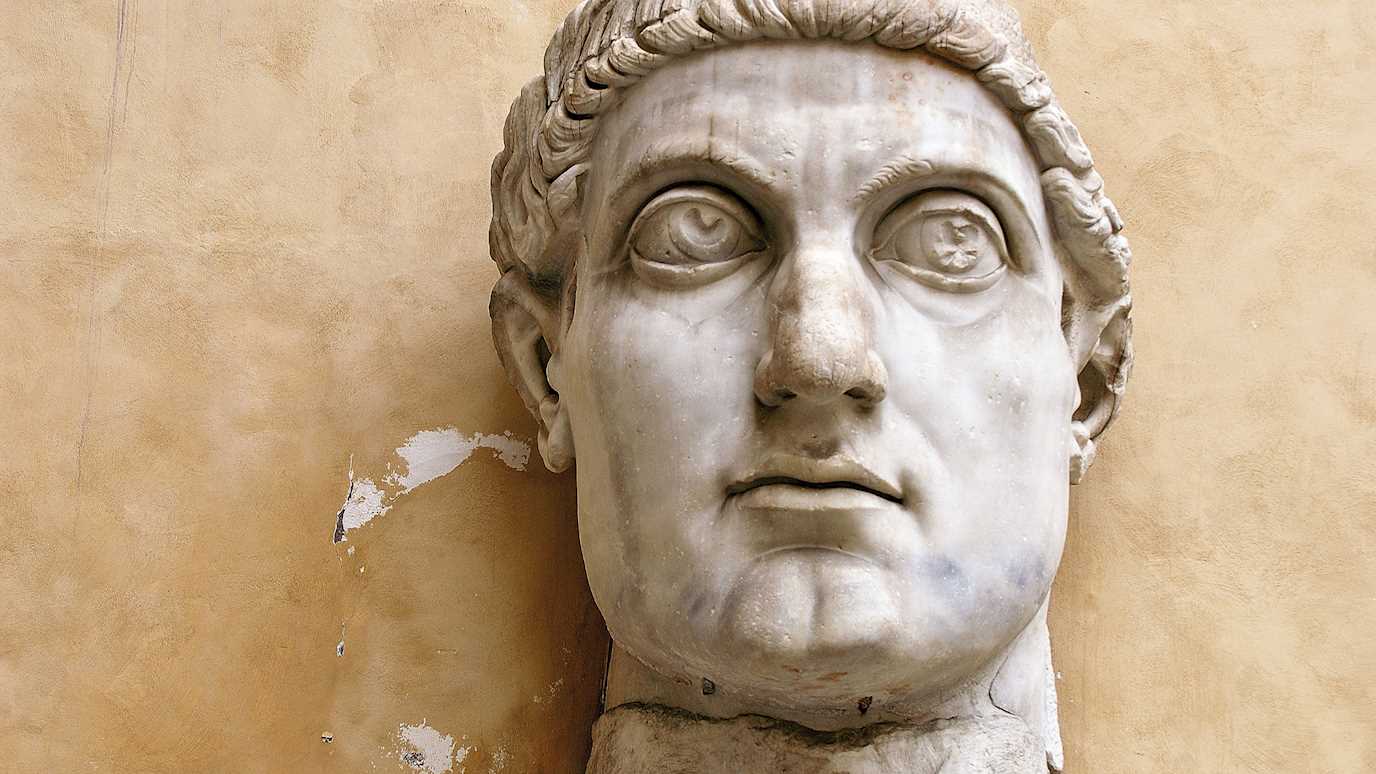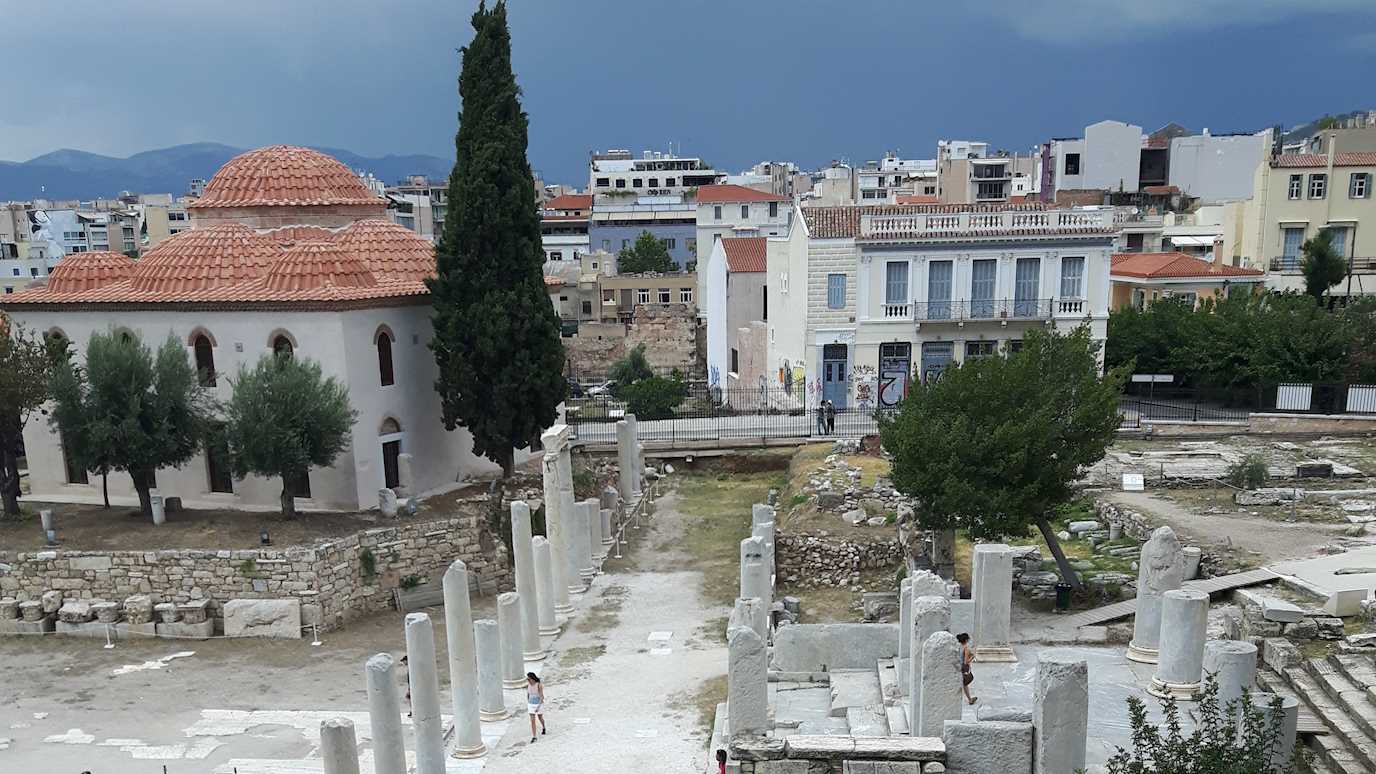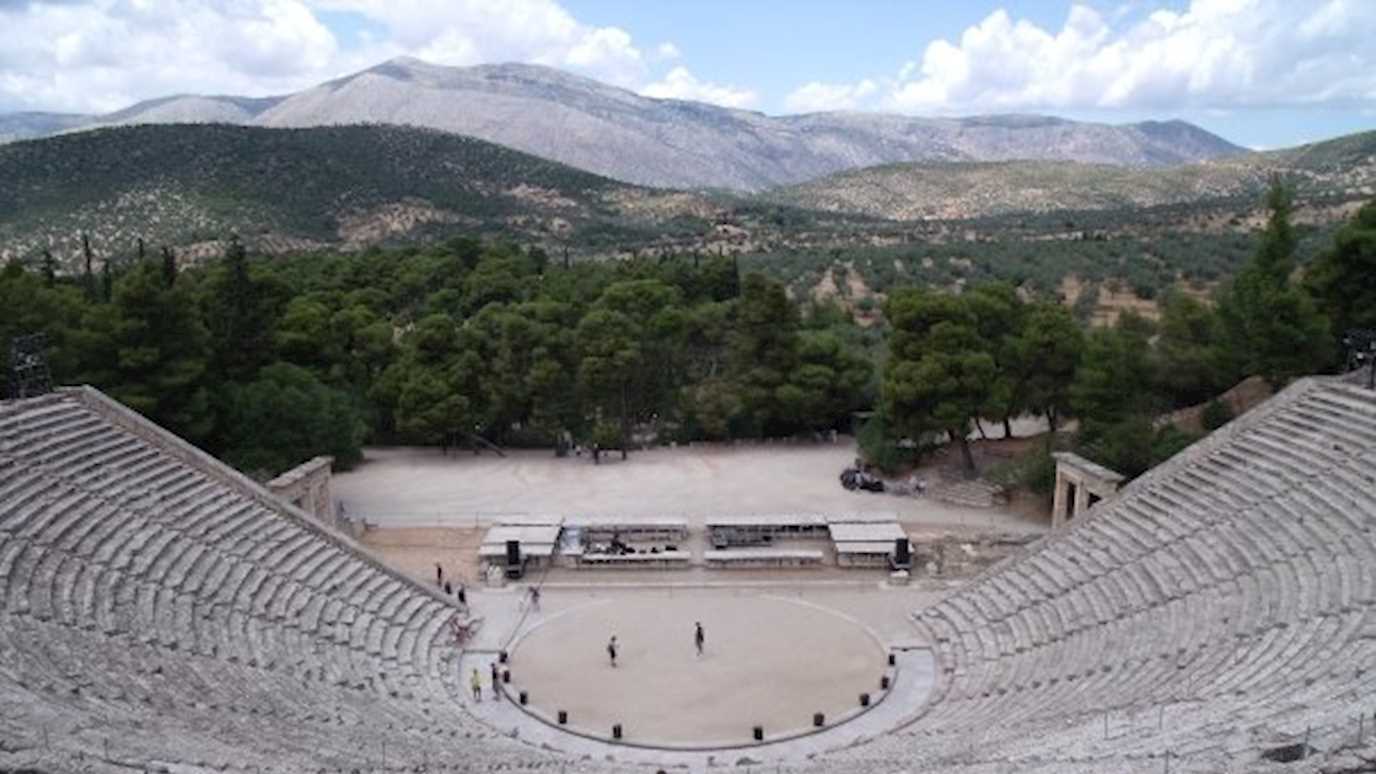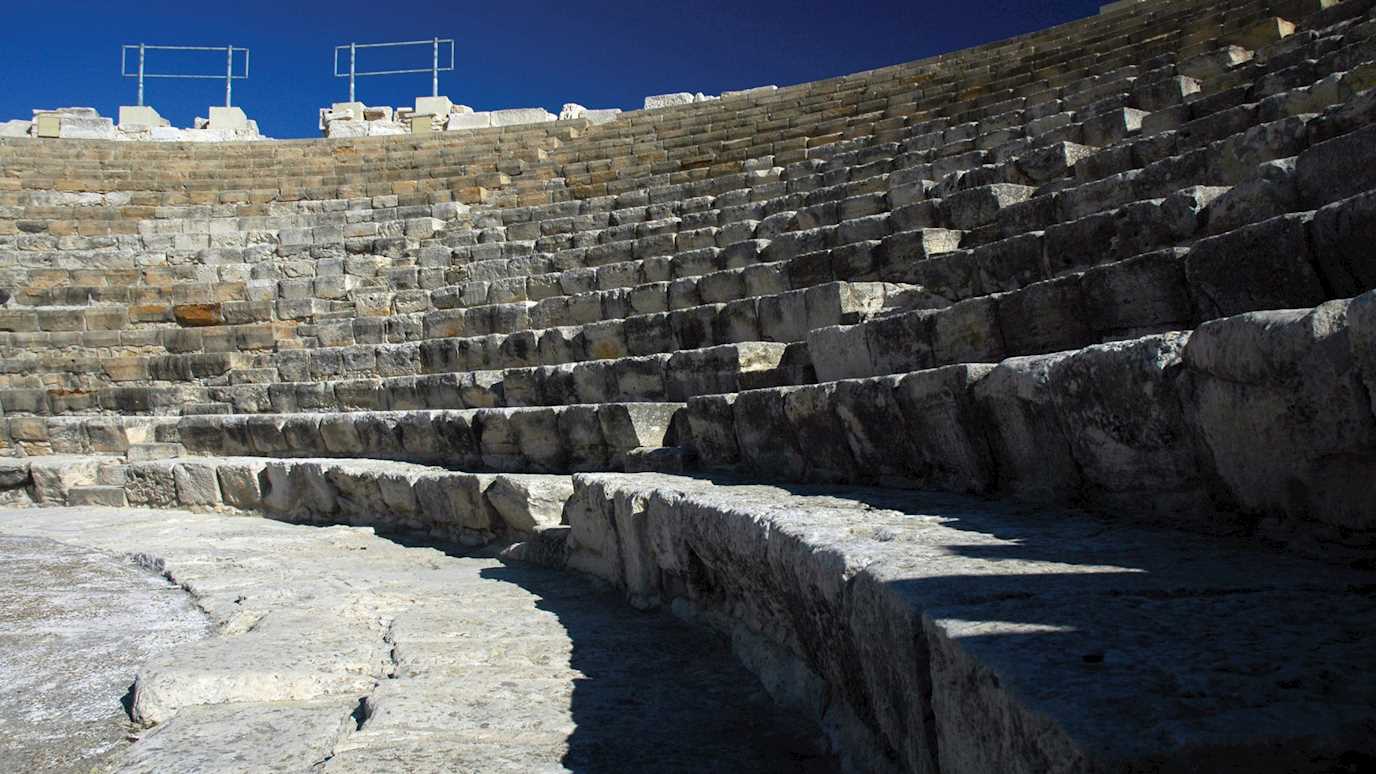Classics at Royal Holloway has a rich and varied research culture.
The core of the department's research comes from colleagues' individual interests and specialisms, driven by our curiosity about the Greek and Roman world and our desire to find out more about it.
Richard Alston
Professor of Roman History
I research on the relationship between the individual and social power in Roman antiquity. My current focus is on the Augustan period and specifically around ideas of political and social power. All my work is at the intersection between social theory and Roman history, hence publications on political philosophy as well as more conventional history. My research has ranged from Egypt in the Roman and Byzantine period through early Roman imperial history, political and social ideas in the Roman imperial period, economic and settlement history, and the history of the city. Most recently, I am publishing on Tacitus as a political thinker, Egyptian houses and social structures, and, in a relatively new departure, the reception of the Classical city in the nineteenth and twentieth centuries. This last is the context of a major project looking at ideas of the Classical city, politics, and the community in modern urbanism focusing on nineteenth-century London, Athens, and Rome.
Siobhan Chomse
Lecturer in Latin Literature
My research focuses particularly on the idea of the sublime and its role in the literature of early imperial Rome. The sensation of the sublime is an experience of almost overwhelming awe in which delight and pain are balanced on a knife-edge. In my research, I examine ways in which Roman authors including Virgil, Lucan and Tacitus use the sublime to express the tensions and instabilities they perceive in imperial society. My work has explored expressions of sublimity found in architecture, technology and the natural world, from monuments to ruins, siege engines to earthquakes and volcanoes. At present, I am revising my doctoral thesis for publication as a monograph and beginning to think about a new research project. This next project will investigate the depiction of the Roman emperor as a sublime being in Latin literature and beyond.
Liz Gloyn
Reader in Latin Language & Literature
My research focuses on the intersections between Latin literature, ancient philosophy and gender studies. I also have a strong specialism in classical reception.
My core research is on Seneca the younger and his approach to Stoicism and the family. As a result, I'm interested in his works in general and the social history that provides the context for understanding them, as well as the way that he reshapes Stoicism for Roman culture.
In the broader field of Latin literature, I'm interested in innovative approaches to familiar texts, particularly from a feminist perspective or from an angle that incorporates social history and the family.
One half of my classical reception interests focused on classics in popular culture, with a particular interest in film and children's literature. My book on the reception of classical monsters in popular culture has just been published by Bloomsbury Academic. The other half is interested in the history of women and classics, in particular how women became professional academic classicists in the late nineteenth and early twentieth centuries
I am currently starting to shape my next book project, which will look at how Seneca uses the family in his tragedies, incorporating both philosophical and literary readings.
Richard Hawley
Senior Lecturer in Classics
As a Teaching Focused member of staff from 2016 my research now focuses on education and classical culture, such as education in the Greco-Roman world, rhetoric, declamation etc., as well as the teaching of classical languages, literature, and culture in different time periods and cultures. My previous research has centered on gender and identity in the Greco-Roman world, Greek drama, and Greek literature of the early Roman empire. I am currently finishing an undergraduate textbook on how to approach the study of gender in Greco-Roman culture.
Zena Kamash
Senior Lecturer in Roman Archaeology and Art
I am a Roman archaeologist who specializes in the Roman Middle East and Roman Britain. I have wide-ranging interests that include ancient technologies, memory, food, sensory understandings of the past and religion. Drawing on my work on cultural memory and the social roles of technologies, my current focus is on the post-conflict futures of built heritage in the Middle East, in which I advocate holistic, egalitarian responses that embrace social and cultural factors, alongside modern technologies. I am exploring this in projects, such as ‘Remembering the Romans in the Middle East and North Africa’ (2016), ‘Postcard to Palmyra’ (2016) and ‘Rematerialising Mosul Museum’ (2018), which aim to include a diverse range of people and their voices in creating new ways of thinking about, and responding to, Middle Eastern cultural heritage.
Dr Zena Kamash, Senior Lecturer in Roman Archaeology and Art
Chris Kremmydas
Reader in Ancient History
My research interests fall in the areas of Greek social, political and legal history, oratory and rhetoric, and historiography. I am also interested in epigraphy, papyrology, and textual criticism. I welcome applications from prospective research students wishing to work in one of these areas.
Nick Lowe
Reader in Classical Literature
Most of my research on Greek and Latin literature and its reception has centred on cognitive approaches to literature and its history, with particular foci in narrative and comedy, where I've been drawing on recent work in cognitive science to help understand aspects of the poetics of ancient drama, fiction, and humour. My current book projects are a history of the fantastic in Greek and Latin literature, drawing on models and debates from science fiction scholarship, and a large-scale overview of ancient Greece in modern historical fiction. I've also written recently on the narratology of dreaming, on the involvement of classical scholars in paranormal research, on the history of English translations of Lucretius, and on the mythography of heroic returns.
Jari Pakkanen
Professor of Classical Archaeology
The focus of my research is on the ancient built environment and especially on architectural design in the Greek world. Three-dimensional documentation in the field and use of statistics and computer simulations in archaeological research are also important aspects of my on-going projects.
Boris Rankov
Professor of Ancient History
My Olympias Trireme reconstruction has become the most frequently referenced representation of an ancient Greek warship and raised awareness of ancient Mediterranean seafaring worldwide through its appearances on television, in textbooks and academic works. The Trireme has provided experimental data and acted as a typical example of a project in experimental archaeology as well as serving to popularise Greece’s maritime heritage and improve the understanding of ancient shipping.
Erica Rowan
Lecturer in Classical Archaeology
As a Roman archaeologist specializing in the analysis of archaeobotanical material, my research focuses on Roman diet, ancient nutrition, the formation and evolution of food identities, and the economies of production. I use literary, archaeological, and archaeobotanical evidence to explore the way cultural tensions within Roman society were expressed, embedded, and resolved through the prevailing food culture. I am currently working on a forthcoming monograph, entitled Food and Diet in Republican and Imperial Roman Italy, to be published with Bloomsbury. Additionally, I am the archaeobotanist for excavations in Italy and Turkey and I have previously excavated in the UK, Jordan and Tunisia. I welcome applications from prospective research students wishing to work on any aspect of ancient foodways.
Lene Rubinstein
Professor of Ancient History
My main research areas are ancient Greek history and Classical oratory and its legacy in the modern world. In the field of ancient history, I am especially interested in Athenian law and social history, the administration of justice in the cities in the Hellenistic Greek world, and democracy in theory and practice in ancient Greece and in the modern world. Together with my colleague Dr Christos Kremmydas, I run our Centre for Oratory and Rhetoric which has organised several events, including conferences entitled 'From Antiphon to Autocue: speechwriting ancient and modern', 'From Thucydides to Twitter: towards a history of the "soundbite"' and recently a series of workshops focussing on the opening prosecution speeches delivered before the International Military Tribunal in Nürnberg.
Efi Spentzou
Reader in Latin Literature & Classical Reception
I work at the intersection of Classics with modern critical thought and also have a sustained engagement with the politics of the reception of Classics in its European, and especially, Modern Greek literature and context. I have written monographs on the feminine voice and French feminist thought in Ovid’s Heroides, and on literary representations of Roman Imperial subjectivity from Nero to Hadrian. Gender relations, the artist, home and belonging underpin my book on the politics of love in Augustan period and a co-edited volume on power, desire, and images of the Muses in Greco-Roman literature. Psychogeography and human and cultural space inform a co-edited a volume on The Production of Space in Latin Literature and a new project on Ovid in the 21st century on nomadic daughters and crossing boundaries in Ovid’s Metamorphoses, expanding published work on Bracha Ettinger’s concept of blended identities.
Dr Efi Spentzou, Reader in Latin Literature & Classical Reception
























